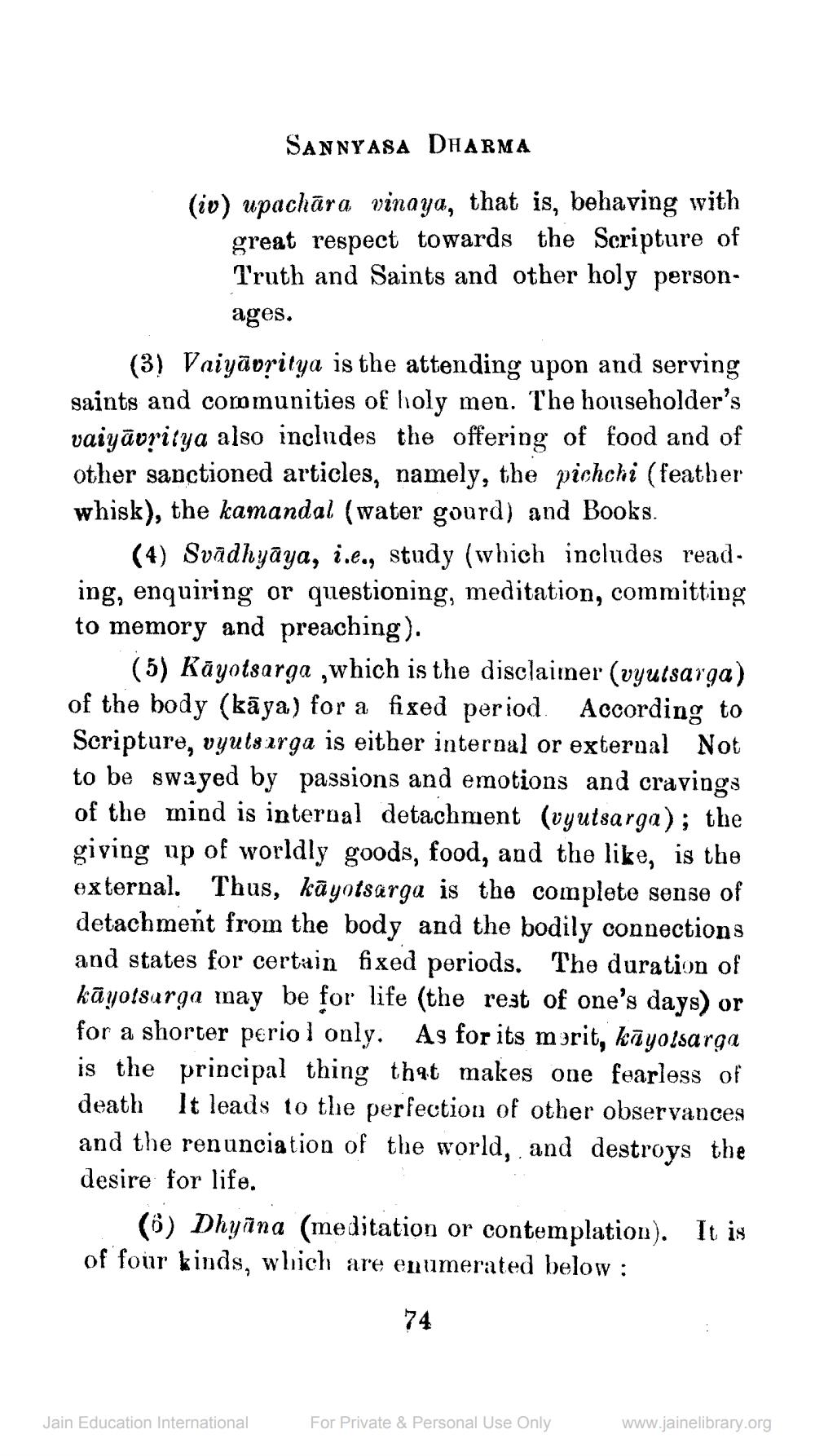________________
SANNYASA DHARMA
(iv) upachāra vinaya, that is, behaving with
great respect towards the Scripture of Truth and Saints and other holy person
ages. (3) Vaiyāoritya is the attending upon and serving saints and coromunities of holy men. The householder's vaiyāoritya also includes the offering of food and of other sanctioned articles, namely, the pichchi (feather whisk), the kamandal (water gourd) and Books.
(4) Svadhyāya, i.e., study (which includes reading, enquiring or questioning, meditation, committing to memory and preaching).
(5) Kāyotsarga , which is the disclaimer (vyutsarga) of the body (kāya) for a fixed period. According to Scripture, vyutsarga is either internal or external Not to be swayed by passions and emotions and cravings of the mind is internal detachment (vyutsarga); the giving up of worldly goods, food, and the like, is the external. Thus, kāyotsarga is the complete sense of detachment from the body and the bodily connections and states for certain fixed periods. The duration of kāyotsarga may be for life (the rest of one's days) or for a shorter periol only. As for its myrit, kāyotsarga is the principal thing that makes one fearless of death It leads to the perfection of other observances and the renunciation of the world, and destroys the desire for life.
(6) Dhyana (meditation or contemplation). It is of four kinds, which are enumerated below :
74
Jain Education International
For Private & Personal Use Only
www.jainelibrary.org




